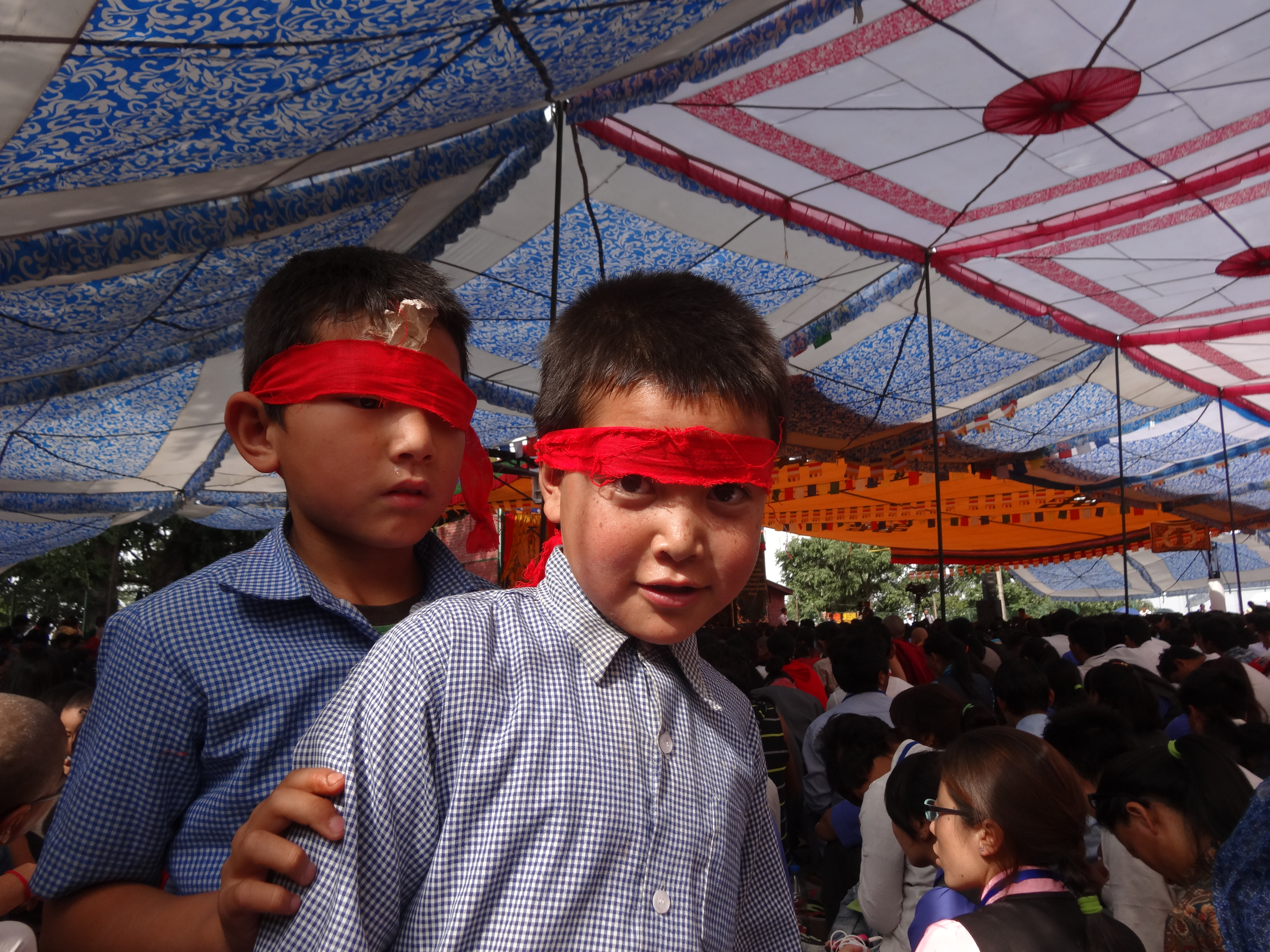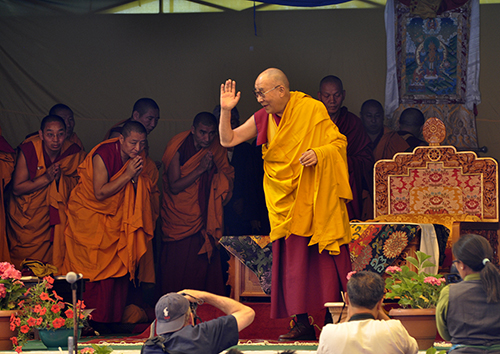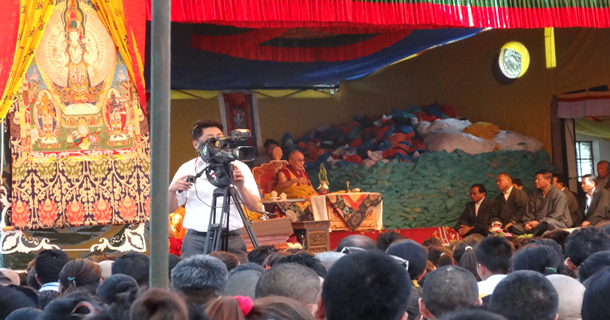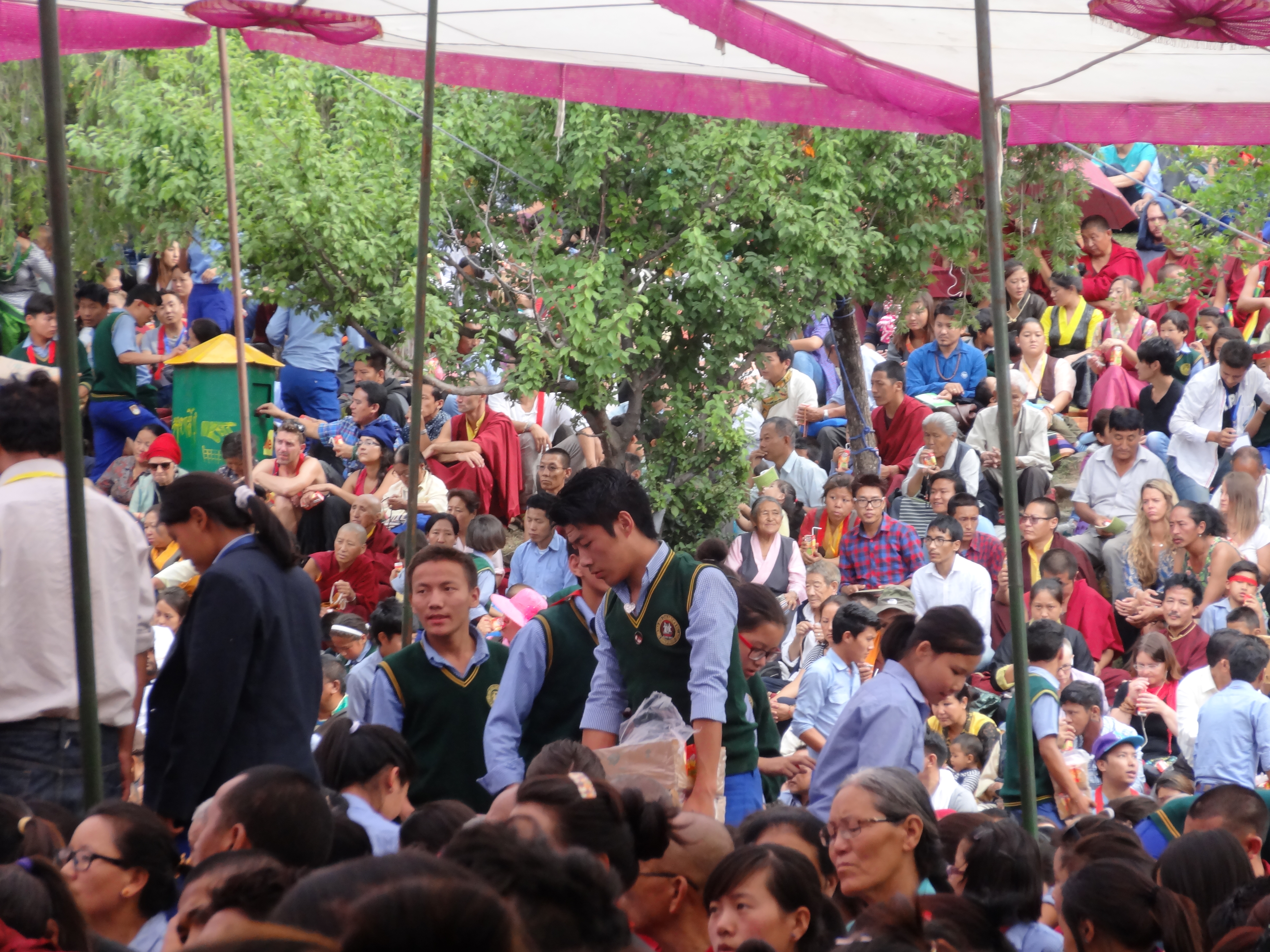His Holiness the Dalai Lama gave a three-day introductory Buddhist teaching for Tibetan school and college students, concluding with the conferment of the Avalokiteshvara Empowerment, at Upper Tibetan Children’s Village School in Dharamshala. On the final day, the Tibetan Children’s Village family offered a Long Life Prayer (Tenshug) to His Holiness who greeted students as they presented ritual offerings.
Over 4,500 TCV past and present students attended the teaching, to hear His Holiness stress the importance of both traditional and modern education for the overall development of a human being. “Modern education is very important but traditional education is no less important,” said His Holiness.
His Holiness said that selfishness is the root cause of all problems, “Because we think only of ourselves and then there is also corruption and many other things”. He noted the importance of having good motivation when receiving initiations and empowerment and said “You should think that all sentient beings want happiness just as yourself. You don’t want suffering just as all other sentient beings also do not want suffering”.
Summarising his teachings, the Dalai Lama explained that when one is asked about Buddhism the ideal answer both verbally and in practice is that “Buddhism is the philosophical understanding of dependent existence and ethical conduct through non-violence. While the former is now echoed by the scientific community in the field of quantum physics, the latter is instrumental to world peace.”

Young students wearing the red bands on their heads for the empowerment initiation
Photo: Contact/Lha
On his arrival at TCV, the Dalai Lama was given a traditional Tibetan welcome as students sang a traditional song and several groups of lay-people performed debates. His Holiness congratulated them for taking an interest in logic and philosophy and said, “In Tibet in the past almost no one from the lay community or even from among the nuns engaged in debate… I’ve urged people…to take it up”. During the teaching, His Holiness made time to answer students’ questions.
His Holiness also spoke of his commitment to preserving the natural environment of Tibet as something of importance to up to one billion people in Asia as well as to Tibetans in Tibet. He said “I have done what I can to preserve Tibet’s ecology and its compassionate, non-violent culture. Now I’m passing this responsibility to you.”







 Print
Print Email
Email